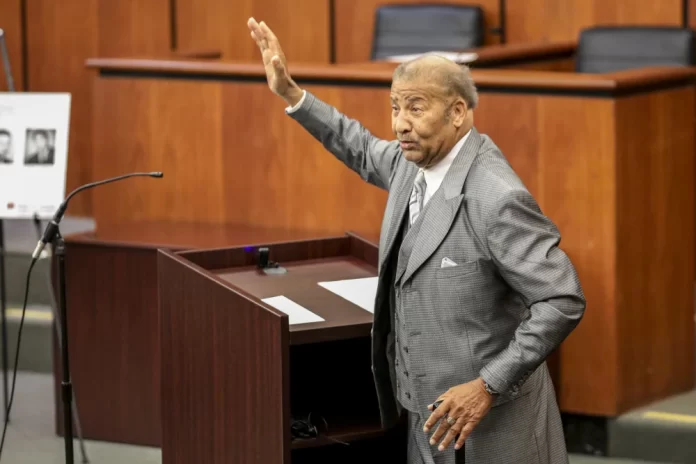1960s Civil Rights Protesters Who Staged Historic Sit-In Finally Have Arrest Records Cleared
In a powerful ceremony on Friday, Simon Bouie and six friends, who were arrested in 1960 for challenging segregation by sitting at a whites-only lunch counter in South Carolina, finally saw those arrest records erased. This expungement, held in a Columbia courthouse just blocks from the original sit-in location, was both a tribute to their courage and a long-overdue act of justice.
Simon Bouie’s Stand for Equality
When Bouie, a Black student at Benedict College, joined the sit-in, he promised his family he wouldn’t get into trouble. Yet, he defied the warnings from the South Carolina governor, who had cautioned Black college students against joining “agitators” in fighting for civil rights. “We had a desire to fight for what was right and nobody could turn us around. We walked in that building with our heads held high and sat down,” Bouie recalled. His act of defiance was part of a larger movement that began in Greensboro, North Carolina, and inspired sit-ins across the South.
Expungement Ceremony Honors Deceased Protesters
Only two of the original seven men, Simon Bouie and Charles Barr, are still alive today. Both men, now elderly, walked around the Richland County courtroom with canes, while the five men who have since passed — David Carter, Johnny Clark, Richard Counts, Milton Greene, and Talmadge Neal — were symbolically represented by white roses at the front of the courtroom. Reflecting on that era, Barr said, “It made me feel good we were a part of this movement that had helped to make everything easier for everyone to get along a little better in South Carolina.”
A Legacy of Courage and Resilience
The arrests of Bouie and his friends went all the way to the U.S. Supreme Court, which threw out their convictions just days before the Civil Rights Act of 1964 was signed. However, the arrests remained on their records until now. Solicitor Byron Gipson, who advocated for the expungement, emphasized the bravery of these men, saying, “These men stood bravely — sat bravely, quite frankly — in the face of adversity, in the face of threats, in the face of death.” After Gipson presented the expungement paperwork, Judge Robert Hood signed it, receiving applause from the courtroom’s 150 attendees.
“These heroes stood firm against oppression often at great personal cost,” Hood declared. “Their unwavering commitment to justice serves as a beacon of hope and inspiration to us all.”
Reflections on a Life Changed by Protest
Despite the arrest, Bouie and his friends completed their college education and built successful lives. But for Bouie, the sit-in was a defining moment — one that his wife often jokingly reminded him of. “When I would get in trouble at home, my wife would say to me, ‘Now you talk to me that way again, I’m going down to Richland County court. You have a case. And you’re in big trouble,’” Bouie shared to the laughter of those in attendance.
From Victimization to Vindication
As University of South Carolina professor Bobby Donaldson expressed, the expungement ceremony was more than a formal process. It was a public acknowledgment of the injustice faced by these young men who put their lives on the line for equality. “In 1960 they were victimized. Today they are vindicated. In 1960 they were prosecuted. Today they are praised. In 1960 they were convicted. Today they are exonerated,” Donaldson said.
Their struggle helped shape a new future, one step closer to the vision they held of a truly equal America.








